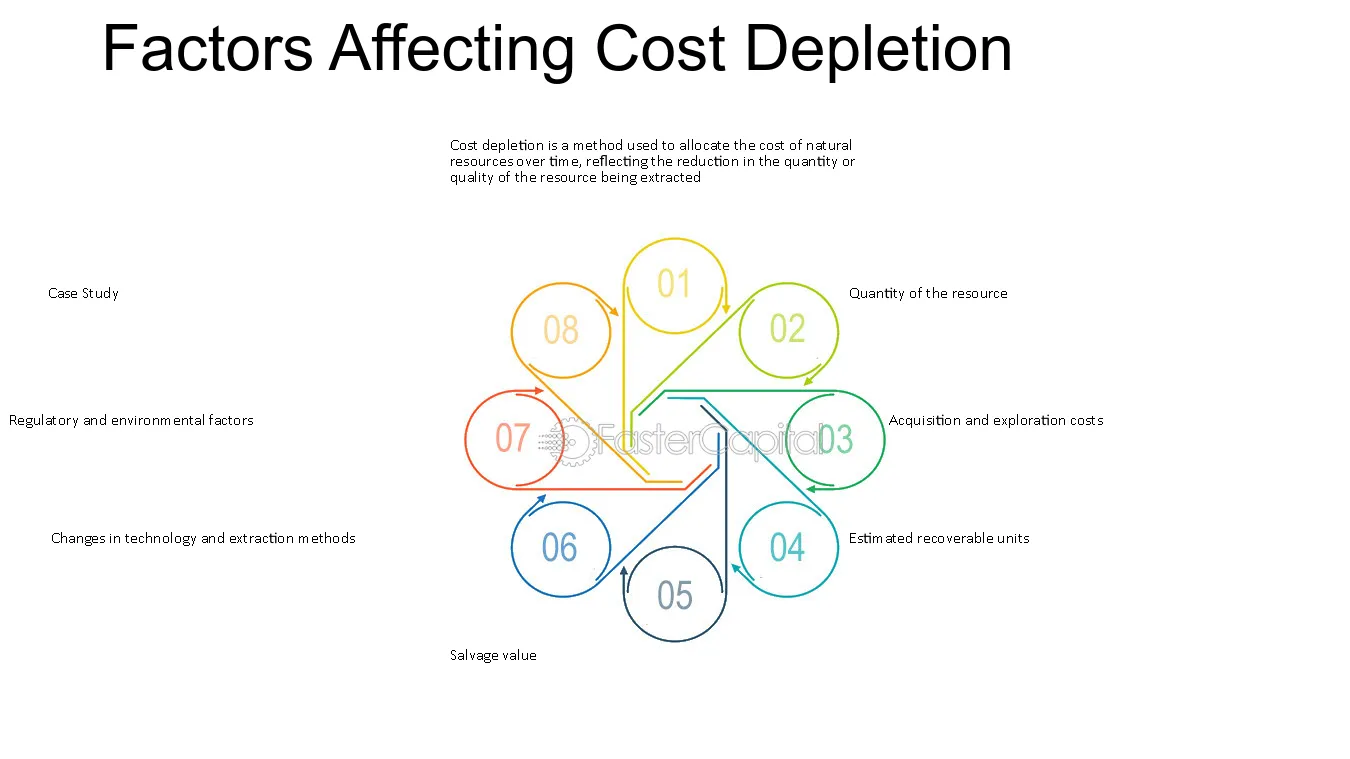What is Depletion?

Depletion refers to the reduction or exhaustion of a natural resource, such as minerals, oil, gas, or timber, due to extraction or consumption. It is a concept commonly used in accounting and economics to measure the decrease in the quantity or value of a resource over time.
Depletion can occur for various reasons, including natural factors like geological processes or human activities such as mining, drilling, or deforestation. These activities often result in the removal or destruction of resources at a faster rate than they can be naturally replenished.
There are different methods used to calculate and account for depletion, depending on the type of resource and the specific industry. For example, in the mining industry, depletion is often calculated based on the amount of mineral reserves extracted from a mine. In the oil and gas industry, depletion may be calculated based on the volume of oil or gas produced from a well.
Definition, Factors, and Methods

Depletion refers to the reduction or exhaustion of natural resources, such as minerals, oil, gas, or timber. It is an accounting concept that is used to allocate the cost of these resources over their useful life. Depletion is similar to depreciation and amortization, which are used to allocate the cost of tangible and intangible assets, respectively.
Factors Affecting Depletion
There are several factors that can affect the rate of depletion of natural resources. These include:
- Reserve Size: The size of the reserve plays a significant role in determining the rate of depletion. Larger reserves will generally take longer to deplete compared to smaller reserves.
- Extraction Technology: The technology used to extract the resources can impact the rate of depletion. Advanced extraction methods can increase the efficiency of resource extraction, leading to faster depletion.
- Market Demand: The demand for the natural resource in the market can also affect the rate of depletion. Higher demand can lead to increased extraction and faster depletion.
- Government Regulations: Government regulations and policies can impose restrictions on resource extraction, which can affect the rate of depletion. Stricter regulations may slow down depletion, while relaxed regulations may accelerate it.
Methods of Depletion

There are two main methods used to calculate depletion: cost depletion and percentage depletion.
Cost depletion: This method calculates depletion based on the cost incurred to acquire the resource and the estimated recoverable units. The cost per unit is determined by dividing the total cost by the estimated recoverable units. The depletion expense is then calculated by multiplying the cost per unit by the number of units extracted.
Percentage depletion: This method calculates depletion based on a percentage of the gross income generated from the sale of the resource. The percentage is determined by law and varies depending on the type of resource. The depletion expense is calculated by multiplying the gross income by the applicable percentage.
Both methods have their advantages and disadvantages, and the choice of method depends on the specific circumstances and regulations governing the industry.

Emily Bibb simplifies finance through bestselling books and articles, bridging complex concepts for everyday understanding. Engaging audiences via social media, she shares insights for financial success. Active in seminars and philanthropy, Bibb aims to create a more financially informed society, driven by her passion for empowering others.
